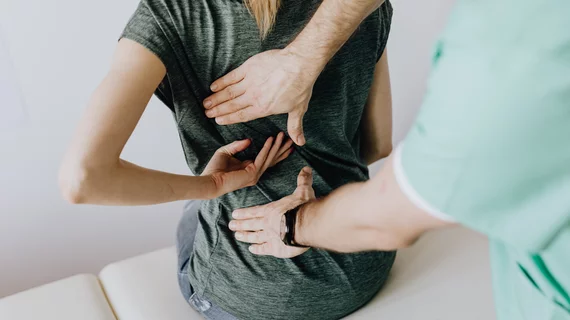Use of unnecessary imaging for lower back pain drops among commercially insured
The use of unnecessary imaging to assess chronic lower back pain among the commercially insured has dropped in recent years, according to new research published Monday.
Diagnostic imaging for this common concern has been proven to provide little value to patients. Yet, efforts to curb this practice have historically been slow to take hold, experts detailed in JAMA Network Open.
However, providers appear to be making progress, based on an analysis of healthcare encounters spanning 220,000 patients, treated for lower back pain between 2011 to 2019. During that time span, the use of imaging dropped from 74%, to less than 60% by the end of the study period. A notable decrease in costs was also observed, falling from $610 per-patient-per-month spent on imaging down to $428 by 2019.
“Among commercially insured patients with [lower back pain], we found a clinically meaningful decrease in use of potentially low-value services,” Timothy Pham, PhD, a researcher working with insurer Anthem, and co-authors wrote Feb. 7. “Trends in the use of potentially low-value services for LBP among commercially insured patients with LBP appear to be moving in a desirable direction,” they added later.
For the analysis, Pham et al. utilized administrative claims data from the HealthCore Integrated Research Environment. Patients met the study’s criteria if they had repeated claims for lower back pain at least eight weeks apart. Inpatient utilization for back pain between 2011-2019 fell from about 12% down to 9%. Along with imaging, surgery and opioid use also dropped during this timeframe, while epidural injections stayed flat. The study was limited by possible miscoding and unknown use of services and medications billed outside of insurance, the authors cautioned.
Read the full research letter here.

